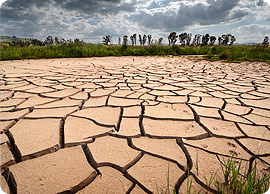|  |  |  |  |  |  |  | |  | | Water shortage |  |  | |  |  | What are the main sources that cause severe water shortage in Europe?
|  |  | How different harmful elements (e.g., fertilizers, gasoline, sulphuric acid) pollute freshwater?
|  |  | What methods / strategies can be used to save water?
|  |  | What methods can be used to provide people with freshwater?
|  |  | How much freshwater can be conserved if strategies and attitudes at a personal level are adopted?
|
|  | | | |  |  |  | No Water? No Future!
13% of the world’s population lives in Europe but only 8% of the world’s water is found in Europe. How is it possible to reconcile the water shortages, the need to keep water free of contamination and the need to consolidate our water resources, are among the main concerns we all face: students and teachers, politicians and professionals, researchers and policy makers. This task aims to provide students with opportunities to study, learn, and discover concepts and processes related to water and water shortage, in an attempt to answer the question: “Can water shortages in Europe (and elsewhere) be prevented?”
Students work through a number of activities in mathematics and science, applying knowledge from the two disciplines. Building on existing understandings and working on interdisciplinary activities, students will develop a comprehensive strategy for facing water shortage at a personal and at an international level.
|  |  | |  | |  | | | |  |  |  | | Download |  |  | | | |  | |  |  |  |  |
| |